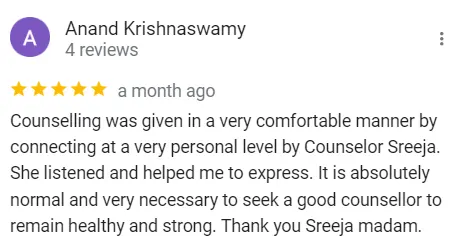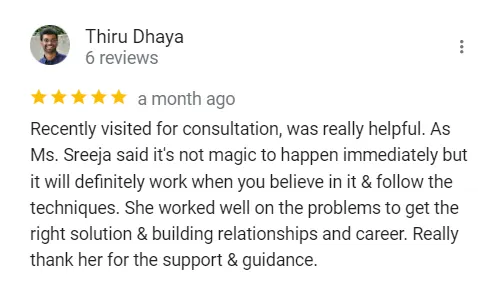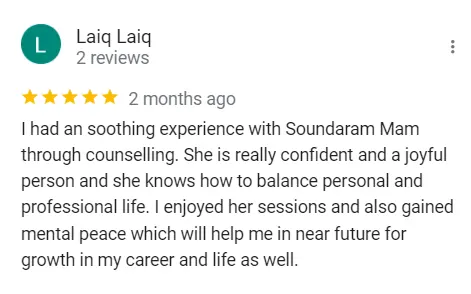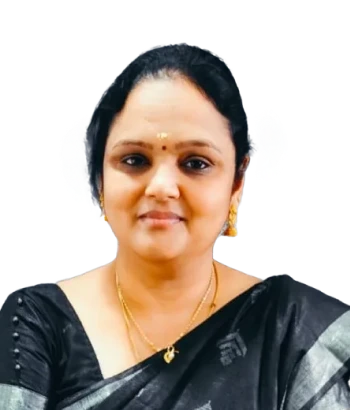Addiction Counselling
Take the first step towards a brighter future with our Addiction Counselling services.

Our experienced counsellors will work with you to understand the root causes of your addiction and develop a customized plan to help you overcome it. With a focus on self-care, support networks, and healthy coping mechanisms, you’ll be well-equipped to tackle the challenges of addiction and reclaim your life. Don’t let addiction control your future, start your journey towards hope and healing today with our Addiction Counselling services.
Mode of Counselling: Both In-Person/Online Counselling
Why Our Approach Works Better
At Chennai Counselling Services, our client-centred, evidence-based approach ensures meaningful progress in every session.
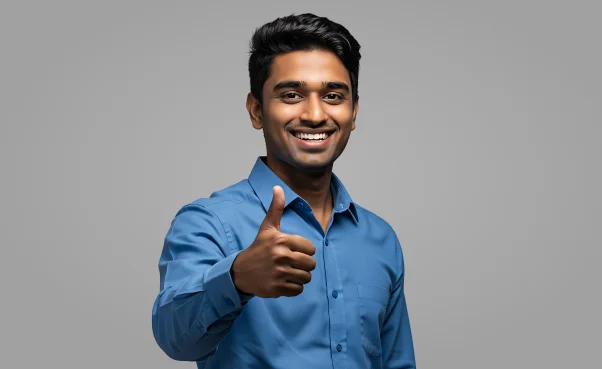
” Therapy is a conversation that helps you understand yourself better “

With over 15 years of experience and 1000+ verified reviews, we’ve earned trust through consistent results and professional care.

We focus on empowering clients, not advising them. Every session is non-judgemental, trauma-informed, and designed to help you make confident decisions.

Unlike many organisations that may require three to five sessions for visible progress, Chennai Counselling Services is known for achieving significant results within just one or two sessions, using structured techniques and targeted guidance.

Our counsellors use scientific, psychology-backed tools within a structured framework that promotes faster progress in fewer sessions.

Each counsellor at Chennai Counselling Services is well-trained, supervised, and experienced, ensuring every client receives professional, ethical care.

We offer both online and offline sessions, with flexible timings to suit busy schedules.
Our Counselors
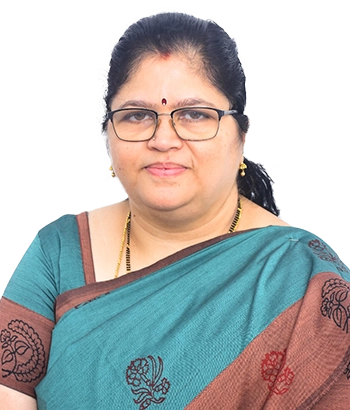
Vidya. N
Counselling Psychologist
M.A Counselling Psychology, PG Diploma in Counselling & Psychotherapy

Preethi Titus
Counselor & Psychotherapist
PGDHRM, PGD in Counselling & Psychotherapy from CCS Academy. Cert. in Child & Adolescent Counselling

Shravan Shankar
Counsellor & Psychotherapist
M.A., PG Diploma in Counselling & Psychotherapy
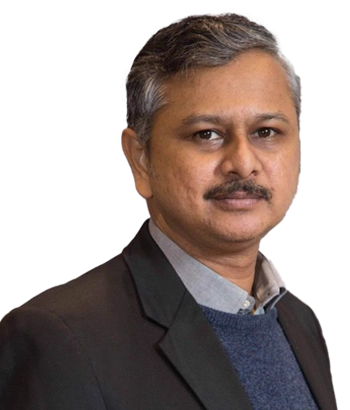
Vibhu Sudhindar
Counsellor & Psychotherapist
MCA., PG Diploma in Coun. & Psyc., Cert. in RECBT
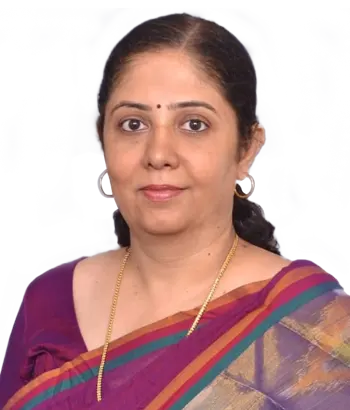
Sowmya Murthy
Counsellor & Psychologist
M.Sc. (Psy.), PG Diploma in Coun. & Psych,. Cert. in Career Guidance Psychometry
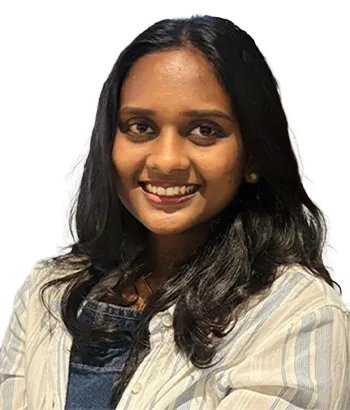
Sarulatha Venkataraman
Counsellor & Psychotherapist
M.Sc., (Med. Psy.), PG Diploma in Coun. & Psych.
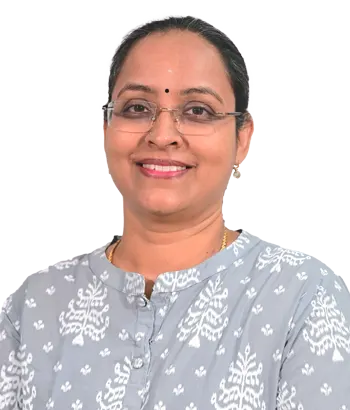
Sangeetha Sundararajan
Counselor & Psychologist
M.A(HRM), M.Sc (Psychology), PG Diploma in Life Coaching & Counselling from CCS Academy
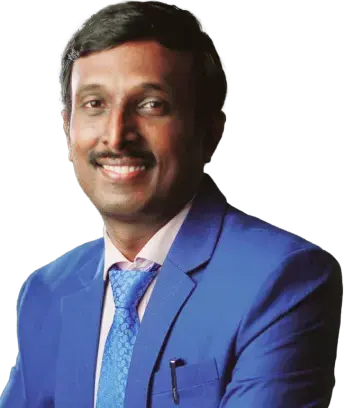
Karthik Lakshmanan
Counsellor & Psychologist
M.Sc. Psychology, PG Diploma in Counselling & Psychotherapy

Padma Sreedevi
Counselling Psychologist
M.A Counselling Psychology, PG Diploma in Counselling & Psychotherapy
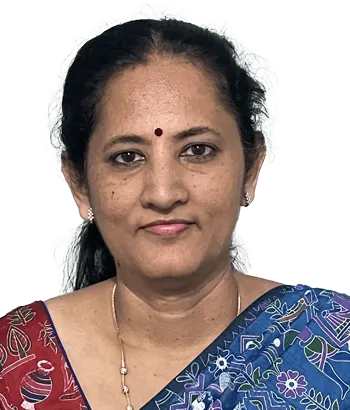
Soundaram N
Counselling Psychologist
M.A Counselling Psychology, PG Diploma in Counselling & Psychotherapy

Haleema Sadiya
Counselling Psychologist
M.Sc. Psychology, PG Diploma in Counselling & Psychotherapy from CCS Academy
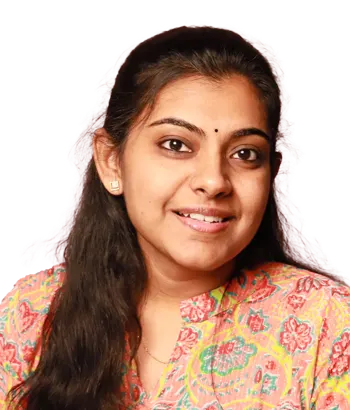
Swetha Shankar
Counselor & Psychotherapist
B.Tech, PG Diploma in Counselling & Psychotherapy
Need Counseling?
Addiction Counselling for Psychological Issues
Addictions are characterized by an inability to control harmful habits and behaviors. These include addictions such as alcoholism, gambling addiction, smoking, or other activities like excessive drinking, risky sexual behavior, overeating and internet usage that can go from social norms into dark compulsion. Building awareness of potential risks may help individuals with recognizing the signs of developing an addiction earlier in order to prevent it from getting worse. Addictions can be a way of escaping difficult emotions or situations, providing people with a momentary sense of pleasure. However, this feeling can become so powerful that it leads to an incessant need for repetition in order to experience the same sensation again and again. Unfortunately, many individuals suffering from addiction are unaware of their condition and its effects on themselves as well as those around them.
How Addiction Counselling can help?
Addiction Counselling is a supportive process that helps individuals overcome personal fears, anxieties, and addictive behaviors. The goal is to assist individuals in taking action and addressing the root causes of their addiction through an in-depth exploration of their behaviors. The ultimate objective is to promote self-understanding and promote recovery.

The counsellor aims to support clients in the following ways:
- Enhancing self-worth.
- Finding positive coping mechanisms for stress and emotions.
- Managing triggers for substance and behavioral addiction.
- Developing effective strategies to manage cravings.
- Rebuilding trust in relationships with others.
- Adhering to treatment plans and taking responsibility for their recovery.
The role of the counsellor is to facilitate the client’s growth and personal development, while respecting their values, strengths, and capacity for self-determination. The goal is to provide lifelong recovery.
How to identify addiction issues
Addiction can manifest in various forms and exhibit different signs, but all addictions have the potential to harm self-esteem and cause feelings of shame, guilt, hopelessness, and failure. Some individuals may be better at concealing their addiction, or may not realize it has become a problem, but changes in behavior can indicate a problem.
Here are some common behaviors and signs that may indicate an addiction:
- Avoiding social activities and neglecting relationships
- Using funds from borrowing or selling possessions to support the addiction
- Attempting to conceal or lie about the behavior
- Experiencing frequent mood swings
- Missing work, school, or social events
- Losing interest in previously enjoyed hobbies and activities.
It’s important to note that the signs of addiction can vary greatly depending on the substance or activity involved. Some addictions may be more obvious, while others may be less noticeable.
Who would benefit from attending an addiction counselling?
People who will most likely benefit from the specialised skill of an addiction counsellor are likely to be those who are directly affected by the impact of a behaviour or chemical that is causing or has caused them harm or distress irrespective of the amount, frequency or usage now or in the past. Examples could include people who are currently chronically abusing alcohol or drugs or caught up in compulsive gambling or addiction to pornography, to people who are just concerned about their usage of certain chemicals such as prescription drugs or eating behaviours. Some people may have stopped their alcohol or drug use for years but are still unhappy and carrying the effects of the past with them and are seeking to recover from earlier, problematic situations in their lives.
Do Addiction Counselors provide services to families?
Yes, our addiction counselors specialize in working with partners, parents, and other family members who are struggling with a loved one’s addiction. It’s important to note that the majority of those most affected by addiction are not themselves addicted but have a close relationship with someone who is.
Family members often face immense challenges as they try to cope with the stress, fear, and worry caused by a loved one’s addiction. They may experience a range of emotions, from concern to anger to exhaustion and despair. Addiction not only harms the health and wellbeing of those struggling with addiction, but it can also have a devastating impact on others. Addiction counselors have the skills, training, and empathy to support family members in distress.
Popular Questions
We have answers to common questions people ask
Counseling is NOT advice/suggestion but helping people to help themselves. It is not telling what is right or wrong. It is NOT giving opinions or 3rd Person’s Point of View. Counselling will help you to improve your emotional/mental health by working on your thoughts/beliefs, feelings, needs and behavior. On the contrary, advice and suggestions will make the people dependent on the person who is offering them. Counseling will make people self-dependent and empowers you to problem solve and make decisions on your own. Counselling will also help you to prevent problems and also develop yourself as a better person.
- Press “Book a Slot & Pay” Button
- Choose the mode of counselling whether in-person or online.
- Choose the counselor or press any counselor
- The calender will open. Please see the available dates in green color. (Brown colored dates indicates slots are NOT available on those days)
- Click on the date you want the slot. It will show the available slots beneath in Green Color.
- Choose the slot you want and Press Next Step Button.
- Give the details of the client. Press Next Step Button.
- Choose any one of the Payment Gateways and make the payment of INR 1600/-:
- Razorpay (UPI/Gpay, Card & Netbanking) Press Submit Button and pay via the pop-up
- Stripe (Visa, Master, Mastro & Amex Card) Give the card details and Press Submit Button.
- After the successful payment, Appointment confirmation screen will appear. Please take a screenshot of that for your immediate reference. You will also get an email from us. If not found on inbox, please check spam and promtions.
We understand there are some fake organizations you might have come across and so getting doubtful about us is normal. The counselor himself maintains the data in the website. It is accurate. You may take screenshots and we assure you that we won’t change our words later.
If we try hard to make people trust us, some become more doubtful. We can’t help it. So we just request to consider the following to confirm our credibility. If you can’t trust us, better do not book appointment with doubts about our credibility. It is not possible to convince you to trust us.
- Verify our Govt. of India Registration Number: You can check our registration Number in https://udyamregistration.gov.in/Udyam_Verify.aspx Our Registration number with Ministry of Small & Medium Scale Enterprises, Govt. of India is UDYAM-TN-02-0007295 Please copy paste the the registration number and do not try to type as you may miss some characters.
- Verify GSTIN: You may visit https://services.gst.gov.in/services/searchtp and provide our GSTIN: 33AMLPR6303E1Z7. Please copy paste the GSTIN and do not try to type as you may miss some characters. Mobile version of the GST website is not working often. So kindly use laptop/PC to check. You can see our GST Registration certificate in our About Us Page https://counselingchennai.com/our-founder/
- Google Page: Go to www.maps.google.com or Open Google Maps app in your mobile phone and search for “Chennai Counseling Services/CCS Academy”. Regularly we update posts, photos and get new reviews. 700+ reviews are there (If you think all are fake/paid reviews, we can’t help it.)
- Payment Gateways: Payment part is fully taken care by Razorpay Payment Gateway and Stripe Payment Gateway. These are trustworthy gateways. Your payment data is processed in their websites. In case of any issues in the payment, you can contact their 24/7 customer care also.
If you are worried about giving your card details in gateways, please use NetBanking via Razorpay Payment Gateway, you will not give any bank related details in the website of the Gateway. You will just choose the bank under NetBanking and go to your bank website only. Please check whether your bank website is secure with “https” in the URL, check for the spelling of your bank in the address bar and see whether it looks the same way it was before and make the payment. - SSL Secured Website: Moreover ours is a secure website with “https”. You can click on the lock symbol of the address bar and check the full details of our SSL Certificate which proves that the data you give in this site is encrypted and secure.
Our counsellors want to understand the client’s emotions through the facial expressions, gestures and tone. So that we can help the client more effectively. In case of chat counselling, Phone/Audio Only counselling, these ques will be missing and the counselling will not be effective.
We require payment upfront to ensure the best use of everyone’s time. Here’s why:
- Scheduled Appointments: Our counselors have dedicated time slots for each session booked online. Walk-ins could disrupt these appointments and cause delays for everyone.
- Guaranteed Availability: By booking and paying in advance, you secure your spot with your preferred counselor and ensure they’ll be available for your session.
- Commitment and Preparation: Having a financial investment in the session often leads to higher commitment and better preparation, which improves the overall outcome.
Yes. If the client has any diagnosed psychological disorder and is under regular medication already, we will be able to treat.
It is based on various factors such as severity and onset of the issue, support system available, client’s motivation and engagement. When we assessed all of them and give an approximate number of sessions required in the past, some clients took it like we unnecessarily ask them to come for many sessions. So we stopped giving idea on the number of sessions required and we leave it to the discretion of the client. Client may choose to book appointment when he/she wants a session.
We never tell the clients to book many slots in advance. During the counseling sessions, we may discuss whether the next session is required or not and client can choose to book or leave it.
The clients will anyway pay for only one session every time. In the first session, you can evaluate whether counselling can help you and decide to book for further sessions or not. When you book for the next session, please make sure that you have an agenda for the session.
The client would bring the agenda for the session and counsellor will help to get a direction by working on your thoughts, emotions and behaviours. The agenda may be to resolve a problem or to prevent future problem(s) or to develop oneself.
If there is no diagnosis of any severe psychological disorder, counselling will surely help you. If you have been diagnosed to have disorders such as Schizophrenia/Bi-Polar Disorder/Personality Disorder by a clinical psychologist, Counselling will help with regular medication.
Counselor will first meet the client individually and spend more time. Family members/parent will be met later for a brief period of time. It will not be possible to update you about the things happened in the session owing to confidentiality. Our counsellor will try his best to empower your family member/child to communicate the things happened in the session to you directly.
Of course, well-wishers are very important people in our lives. Though talking to them may resolve some issues, there are many limitations. In the busy life of the present, friends and family have their own problems and may not be listening very carefully and unintentionally end up giving advices that may actually prove more harmful than helpful. They may not be able to look at you objectively. They can be biased unconsciously because they have preconceived notions about you. There is a possibility that they can influence you with their personal values and judgments. When issues are complex, they may become anxious and transfer their anxiety to you, whereas a professional assesses you based on scientific knowledge and thus the bias is very minimum and objectivity is very high. A professional will be able to help even if the issue is complex because he is well trained to understand people and possess the skills and qualities to help!
Counsellors help in learning new/different ways of thinking, feeling and behaving to resolve conflicts/problems/losses in everyday life.
Counseling is always voluntary. People should not be forced to go for counseling. Counsellors have respect for Privacy and Autonomy. Counselor will not give their personal opinions in right-wrong paradigm. He may guide the clients on the scientific facts. He will not influence the client by personal values and judgments. He maintains strict Confidentiality. He does not reveal the identities and things discussed in counseling to any other. The Counsellor has developmental and cultural sensitivity and act to avoid harming his clients. The relationship between Counselor and Client will be a professional relationship alone. He does not condone or engage in discrimination based on age, gender, culture, disability, ethnicity, sexual orientation, caste and religion. When he feels that he is not able to help the clients and lack in competence, he will refer the clients to competent professionals. Please see the Our Ethics Page for more details.
The individuals who accept that their own efforts have not helped and seek counseling voluntarily benefit the most! Please remember that counseling is NOT advice giving. Counseling help is not a “quick-fix” solution. It is an interpersonal process between the client and a trained mental health professional. Commitment on the part of the client and their families along with counseling professional bring greater results.
Both professionals often deal with similar mental health problems; however the focus of treatment tends to be different. Psychiatrists are medical doctors with M.D. in Psychiatry or Diploma in Psychological Medicine (DPM) and are recognized to prescribe medicines, specializing in the treatment of mental disorders.
A professional counselor is a psychologist who has the ability to define problems and identify the barriers that prevent them from thinking clearly. The counselor throws light on those barriers and works with the individual’s mental health by working on the thoughts, emotions and behaviours to develop proactive and objective solutions to problems. Psychiatrists and professional counselors may team up together in treatment process for better results for various psychological issues such as addictions, depression and anxiety that require medications.
In psychological counseling, it is generally considered better to meet the client first rather than informants. The primary reason for this is that the client is the direct recipient of the counseling and their perspective and experiences are crucial for understanding their mental health and well-being. By meeting the client first, the counselor can establish a therapeutic relationship with them, which is essential for effective counseling. This relationship helps build trust, empathy, and rapport between the client and the counselor, creating a safe space for open communication and exploration of their concerns.
While informants such as family members, friends, or teachers can provide valuable insights into the client’s life and behavior, their perspectives may be subjective or incomplete. Meeting the client directly allows the counselor to gather information firsthand and gain a comprehensive understanding of their unique circumstances. It also enables the counselor to assess the client’s mental health needs accurately and tailor the counseling approach accordingly.
Here are some of the potential concerns:
1. Lack of client perspective: Meeting the informant first may result in a limited understanding of the client’s experiences, emotions, and concerns. The counselor may form initial impressions or make assumptions based solely on the informant’s account, which can be subjective or incomplete.
2. Loss of client trust: If the client discovers that the counselor has met with an informant before meeting them, it may raise questions about confidentiality and trust. The client might feel that their privacy has been compromised or that their perspective has been misrepresented.
3. Inaccurate assessment: Without direct interaction with the client, the counselor may struggle to accurately assess their mental health needs, symptoms, or goals. The counselor’s understanding of the client’s situation may be based on second-hand information, potentially leading to misinterpretations or misdiagnoses.
4. Limited therapeutic relationship: Establishing a strong therapeutic relationship is crucial for effective counseling. By meeting the informant first, the counselor may miss an opportunity to build rapport, trust, and empathy directly with the client. This can hinder the therapeutic process and impact the overall effectiveness of counseling.
5. Ethical considerations: Meeting informants before clients raises ethical considerations related to confidentiality, informed consent, and professional boundaries. It is essential for counselors to prioritize the well-being and autonomy of their clients while adhering to ethical guidelines and legal requirements.
Counseling is always voluntary because it is a process that is based on the relationship between the counselor and the client. The client needs to be able to trust and feel comfortable with the counselor in order to be open and honest about their thoughts, feelings, and experiences. This is essential for the counseling process to be effective.
If counseling is not voluntary, the client is less likely to be engaged and to participate fully in the process. This can make it difficult for the counselor to help the client achieve their goals. Additionally, forced counseling can be harmful and can actually make the client’s problems worse.
The client must be initially motivated to attend at least their first appointment and maintain their drive to avoid dropping out. Collaborative engagement encourages the therapeutic alliance and improves treatment outcomes.
- Assessment Accuracy: A counselor needs a full session to thoroughly assess and understand a client’s concerns. A few minutes over the phone may not provide enough context or detail for an accurate assessment. Observing their personality, mood, body language, and other non-verbal cues are important aspects of understanding the client’s needs. This observation helps counselors determine the most effective therapeutic techniques to use. A short phone call lacks the depth and breadth of interaction required for these assessments, which can only be achieved during a dedicated counseling session.
- Incomplete Information: Clients may not be able to convey the full extent of their situation in a short phone call, which could lead to incomplete or misunderstood information.
- Possibility of Misjudgment: Brief phone interactions may not allow for a full understanding of the counselor’s approach and skills, and clients might form opinions based on incomplete information or a lack of context. It’s important for both counselors and clients to have sufficient time during sessions to communicate effectively and build a trusting relationship.
The best way to understand whether the counselor’s approach is suitable or not is to book a single session and decide whether it is working or not with the counselor.
- Step 1: Press Book a Slot & Pay Button
- Step 2: Choose the language – English, Tamil, Hindi, Malayalam, Kannada, Telugu, Urdu and Marathi.
- Step 3: Choose the mode whether Online Video Counseling or Offline @ T Nagar Branch or Offline @ OMR Branch and then “Living in India” or “Living outside India”
- Step 4: Choose any counselor or view the profiles of the counselors and choose the one who is suitable to you/the client
- Step 5: The calendar will open. Please see the available dates in green color. Click on the date you want the slot. It will show the available slots beneath in Green Color. Please note that the slots will be in YOUR LOCAL TIME. If you want to book appointment for someone else who is in some other time zone, choose the time zone city and book. Choose the slot you want and Press Next Step Button. Then follow the flow to make payment through Razorpay. Various Payment options are available. You will receive email confirmation from Chennai Counseling Services. If confirmation mail is not found in mailbox, please check spam and promotions and move it to inbox.
Important Note: If you have received only payment mail from Razorpay and not Appointment Confirmation Mail from Chennai Counseling Services, it means appointment was not captured. Please let us know about it immediately. We will take appropriate action
To ensure the highest level of security for your international transactions, we’ve implemented the best security measures and partnered with trusted international payment gateways. The costs associated with maintaining these high standards, including documentation, security protocols, and potential fees from payment gateways such as currency conversion/transaction fees for specific payment methods necessitate a small additional fee of 200 INR for clients residing outside of India. This ensures your data and transactions remain protected, regardless of your location. Thank you for your understanding.
Need Counseling?
